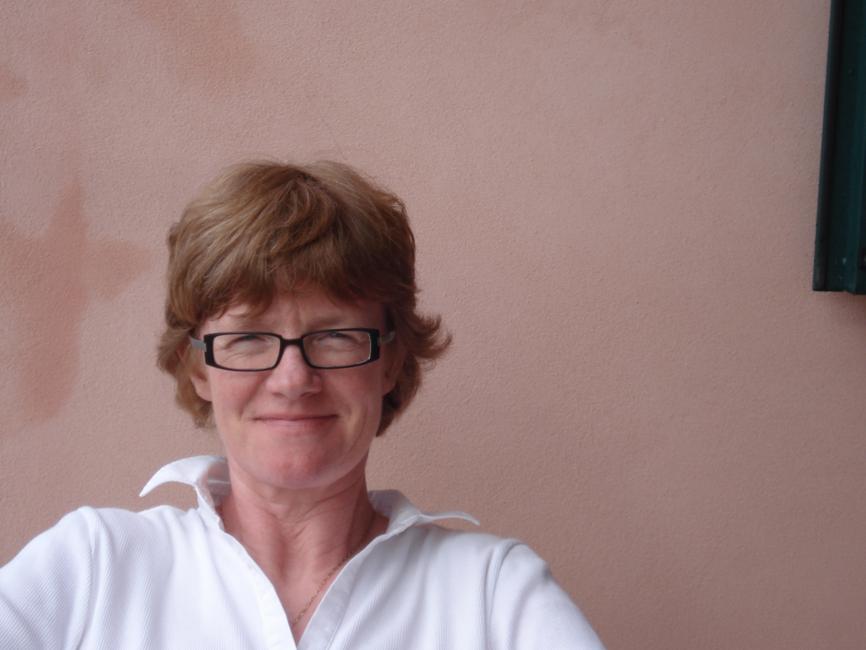London-based Sarah Bakewell follows up her best-selling “How to Live,’’ about the 16th-century essayist Michel de Montaigne, with another book that shows why philosophy matters. In “At the Existentialist Café,’’ Bakewell tracks the birth of the movement to one evening when three friends shared apricot cocktails and follows how this new way of thinking changed their lives and many others. Bakewell discusses her new book at the Harvard Book Store at 7 p.m. March 30.
BOOKS: When you worked as a curator of rare books, did that influence you as a reader?
BAKEWELL: Before that job I read less history and biography than I do now. It didn’t have any effect on how I treat my books. When I read a book I tend to wrestle it around and make notes in it. I think that is the way one should read. When you are working with historic book collections one of the most fascinating things to find is lots of marginalia in a book. That makes a book highly collectible, but we are discouraged from writing in books. The poet Samuel Taylor Coleridge was famous for writing extensive marginalia in his and ones he borrowed. Sometimes his friends resented that but then it became a great thing if you had a book written in by Coleridge. People began deliberately lending him books. His marginalia was so extensive it was published in several volumes.
BOOKS: Are books by the existentialists easier to read than people assume?
BAKEWELL: Some are more readable. Some are less readable than your worst nightmares. Toward the end of his life Jean-Paul Sartre had a tendency to take a mixture of amphetamines and painkillers. He took an awful lot of it and that made him write in this frenzy. That produced some difficult reading. But some things are wonderfully readable, such as Sartre’s memoir “The Words.’’ I really love Simone de Beauvoir’s memoirs too. They may not be especially elegantly turned out and are quite long, but they are full of fascinating conversations, thoughts, and experiences.
BOOKS: Who were the biggest readers among the existentialists?
BAKEWELL: Certainly Sartre and Beauvoir. She not only read a lot but read fluently in many languages, including German and English. She read Virginia Woolf novels and passed them on to Sartre. That influenced him. They were big fans of William Faulkner. They also loved hard-boiled detective fiction, such as “The Postman Always Rings Twice’’ by James M. Cain. As background, I read some of that detective crime stuff, which I hadn’t read before. The one that fascinated me was “They Shoot Horses, Don’t They?’’ by Horace McCoy. I’d seen the film years ago, but the book is far harsher. It brings out their desperate poverty.
BOOKS: What are you reading currently?
BAKEWELL: I’m reading “One of Us’’ by Åsne Seierstad, which is about the shooting in Norway by Anders Breivik in 2011. It’s very well done and very horrifying. I just finished a very different kind of book, “Schubert’s Winter Journey’’ by the singer Ian Bostridge. He takes each song in the cycle and writes a bit about the music and Shubert’s life.
BOOKS: How do you choose books?
BAKEWELL: Sometimes I buy books just because I like the cover. Oddly enough when that happens it often ends up being a favorite, such as “Autonauts of the Cosmoroute’’ by the Argentinian writer Julio Cortázar. He and his wife drove a VW van on this epic journey from Paris to Marseille. They stopped at every picnic area, rest stop, and gas station along the way to have either lunch or dinner. I bought that because I liked the picture of their van and picnic chairs on the cover.
BOOKS: What other kinds of books do you have?
BAKEWELL: The oddest bit of my collection is that I really like language books, you know, teach yourself everything from Czech to Zulu. I like to dip into them and often only read just the first pages. I’ve got a book for Yimas, a language in Papua New Guinea that is only spoken by 200 people. Let’s just say I’m not fluent yet.
AMY SUTHERLAND
Follow us on Facebook or @GlobeBiblio on Twitter.




